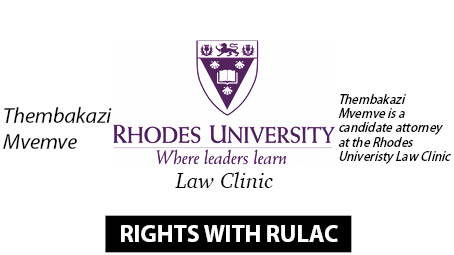Administration of a Deceased Estate
By SIPESIHLE MGUGA
It is important to know who will take control of the estate of a deceased person to ensure that all the rightful heirs inherit. Letters of Authority have caused a lot of confusion with regard to who stands to inherit. This article will provide a clear illustration of the meaning and purpose of Letters of Authority.
At the outset it is important to state that people who have been nominated as representatives of estates in terms of the Administration of Estates Act are not appointed as heirs. They may or may not also be heirs to the estate, which is a different matter altogether. The law prescribes that the representative takes control of the estate, pays the debts, and transfers the residue of the estate to the heirs entitled thereto by law. Please find below an example of how the administration of a deceased estate is supposed to take place.
Case study: how a deceased estate should be administered (NB names and other details have been changed).
Maria Africa was born on 31 August 1928. She was never married. During her lifetime she had three children – Art Africa, Jerry Africa and Elaine Africa. Unfortunately, on 11 January 2018, Maria passed away. She was survived by all three of her children. Maria left a house located in Vergenoeg, Grahamstown, and some furniture.
Upon hearing about her mother’s death, her daughter Elaine remembered her mother told her that she had drafted a Will and that she kept it in a box under her bed. She found the Will. Among other things, the Will stated that Maria Africa had nominated Elaine to be the executor of her estate and that she left her entire estate to all her children in equal shares.
Elaine Africa then took the Will to the offices of the Master of the High Court in Grahamstown at 5 Bathurst Street. At the Master’s Office, she met with the Master and he requested her to list the assets and liabilities of her deceased mother. She then informed the Master that her mother owned the house at the Vergenoeg address and the furniture in the house. Further, she informed the Master that her mother had fully paid her debts and that the only account she had was for municipal rates and some insurance policies. With this information Elaine completed an inventory form which she obtained from the Master. The form clearly reflected that Ms Maria Africa’s deceased estate amounted to R180 000. Elaine was then issued with Letters of Authority.
After issuing Elaine with the Letters of Authority the Master informed Elaine that she was now responsible for paying any outstanding debts of the deceased estate and that after that had been done, she was to then transfer the rest of the estate to her and her siblings in equal shares.
Elaine then met with Art and Jerry and they discussed what should happen to their mother’s house. They all agreed to sell the house, including the furniture in the house, and share the proceeds thereafter. All three of them visited the Master and informed him of their decision to sell the house. The Master was satisfied that there were no outstanding debts and then directed that the house be sold and the money shared among them.
Subsequent to their meeting with the Master, they all approached an estate agent and a conveyancer to assist with the sale of the property.
When a buyer was found, the conveyancer then drafted all the necessary documents and requested that the Representative of the estate sign the documents, so Elaine signed in this regard. The documents were then submitted to the Master’s Office together with a power of attorney authorising the transfer of the property, a certified copy of the deed of sale and the valuations of the property.
Upon receiving these documents the Master then scrutinised them and was satisfied that the correct procedure was followed and that the sale of the property was in the best interests of Elaine and her siblings. The Master stamped the power of attorney showing the Deeds Office that the sale has been endorsed by the Master.
The transfer of the property was finalised in August 2018 and the profit from the sale was then transferred to Elaine, Art and Jerry in equal shares.
Rhodes University Law Clinic helping you
The Rhodes University Law Clinic strives to improve access to justice through the provision of free legal services to indigent people in most areas of law.
In addition to its New Street office, Law Clinic staff are available to clients at the Assumption Development Centre (Konongendi), Nceme Street, Joza, every Thursday from 9am to 12pm.
The Law Clinic also provides monthly workshops on a wide range of topics in order to raise awareness of people’s rights. The workshops are conducted by staff of the Rhodes University Law Clinic at various locations around Grahamstown.
For more detail, please contact the Assumption Development Centre (Konongendi) or the Rhodes Law Clinic:
Rhodes University Law Clinic
41 New Street
Grahamstown
Telephone: 046 603 7656
lawclinic@ru.ac.za


